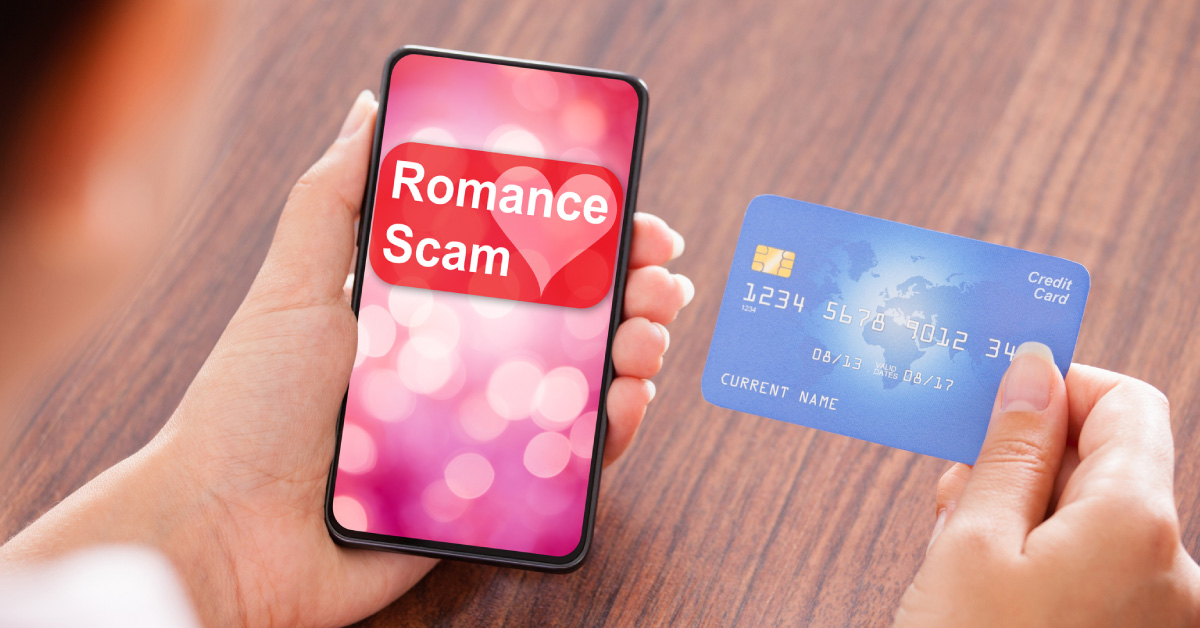Scammers spend a significant amount of time to socially engineer their victims, knowing that as they gain their trust, their chances of extorting large sums of money from them will increase.
Fraudsters do not ask victims for money right away; instead, they spend time conversing with them online and gaining their trust. The reasons for seeking financial aid are more plausible by the time they ask for big sums of money. This is referred to as the ‘grooming time.’
Typically, the longer the period between the date of first contact and the date of the first financial transfer, the higher the amount of money handed over.
High proportion of victims are lonely, widowed or recently bereaved, have suffered from a recent break up and/or suffering from depression.
What is a Romance Scam?
Romance scams is when people are tricked by others into believing they are in a genuine relationship. Fraudsters gain their trust in order to extort people out of large sums of money.
How to spot a Romance scam:
There are lots of red flags that give away whether you, your friend or family have been caught up in a romance scam.
- They might keep their relationship under wraps or make reasons for why their online lover hasn’t video called or met in person. When you inquire about their relationship, they may become hostile or irritated, and withdraw from discussion.
- They could show a lot of emotion and commitment to someone they’ve just met.
- They have sent or intend to pay money to someone they have never met in person. To send money, they can take out loans or take money from their pension.
How you can stay safe from romance scams:
- Don’t jump into an online connection; instead, get to know the person behind the profile by asking a lot of questions.
- Examine their profile and verify their identification. Use your search engine to look for the person’s name, profile images, or other frequently-used terms, as well as the term “dating fraud.”
- Consult your relatives and friends. Anyone who tells you not to tell anyone else about them should be avoided at all costs.
- Never send money or share your bank account details with someone you’ve met online
- Don’t use email, phone, social media, or other messaging apps unless you’re sure the person is who they claim they are.
It’s critical to remember that no matter how long you’ve been communicating with someone online or how much you think you trust them, if you haven’t met them in person, you should not:
- Send them any money you have.
- Permit them to have access to your bank account.
- Make a payment on their behalf
- Take out a loan for them.
- Provide copies of your personal documents such as passports or driving licenses
- Invest your own funds on their behalf or based on their recommendations.
- Purchase and give Amazon or iTunes gift cards with the codes.
- Agree to receive and/or send parcels on their behalf (laptops, mobile phones etc.)
Do not feel ashamed or embarrassed if you believe you have been a victim of a romance scam. You are not alone. Contact your bank right away and report the incident to the police.


